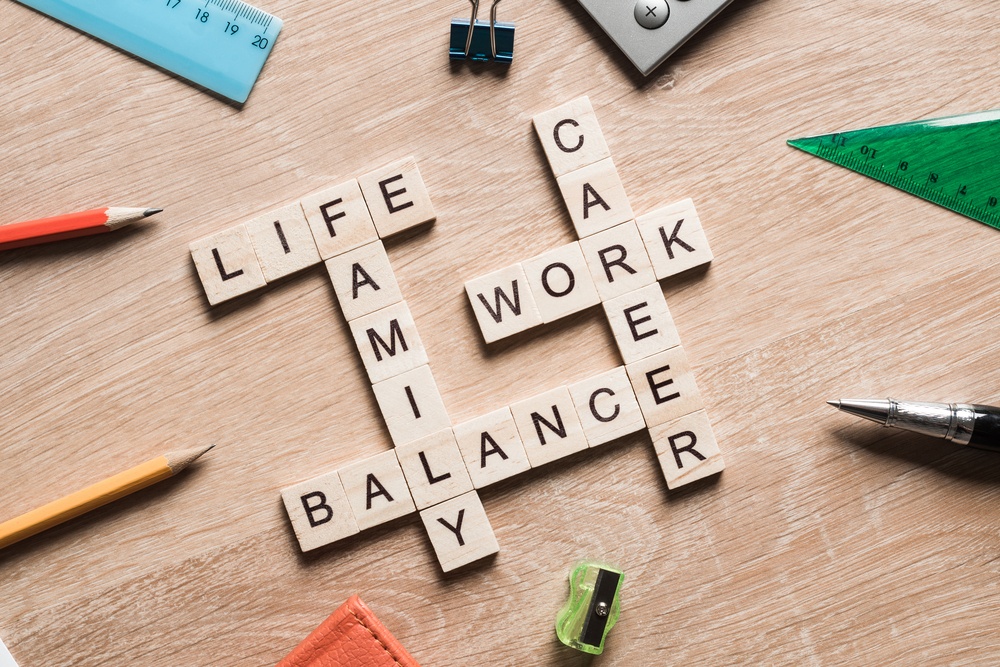It’s different for everyone this work-life balance gig, however is it time to be realistic and realise that we can’t have it all, something needs to give?
Recently GB offered their employees an opportunity to participate in a seminar on ‘Striking the Balance’ and the message was clear, in order to set a balanced life, it was time to focus on what we want to do more of and in turn what we need to do less of to facilitate that.
In the participant discussion, participants talked about how they keep finding themselves adding commitments to their life, whether they felt they wanted them or not, which later lead to feeling feeling guilty when something naturally fell off, like family, self care or productivity at work.
Of course while balance for one person isn’t the same for another, according to the presenters the first step for everyone should be prioritising.
“We need to have adequate time for our personal lives so we can recharge the batteries and be better people, at work and at home. Identifying our priorities and setting healthy professional and personal boundaries is necessary to ensure we keep our balance.”
Let’s keep the advice simple today, it’s great you’re taking some time for yourself right now to read this article, so how can you quickly start adopting what GB learned at our seminar into your life…Today!
You’re kind of a big deal
We can’t look after others if we don’t look after ourselves, you know this, but today can you add into schedule even just a few small bursts of self care?
The first step is boundaries, according to Bupa this means ‘setting boundaries around when we work, when we socialise, our technology use, how much help we’re willing to give others and to our community, time spent with family, and time just for ourselves, to exercise, relax and do things we enjoy.’
Quick ways to incorporate this include taking your time to give answers to new commitments, consider if it’s something you can realistically take on and what else may need to give? Or negotiate timeframes to a more suitable time in your calendar. Speaking of your calendar, get into the habit of blocking out time just for… well nothing, and use those opportunities to simply enjoy being able to do whatever you and/or your family would like on the day – if anything at all!
When it comes to exercise, it doesn’t have to be all or nothing, but how do you fit that in? Start by being realistic about your schedule and not building yourself up for failure and guilt. Perhaps you can only fit in a few quick sessions a week? That’s amazing! Look at a nearby gym that does short classes or consider the many online subscription fitness classes and pop on a video in the comfort of your lounge any time of the day that suits you.
Plan for success
There is nothing like the comfort of knowing everything is ready to go for the week ahead. Time-management expert Laura Vanderkam recommends you log all 168 hours you have in a week to find areas of improvement; “Keeping a log forces you to be honest, many of us have little sense of just how we allocate our time. It’s like keeping a food journal when you’re trying to lose weight—it forces a sense of accountability.”
Sometimes it’s just taking a moment to yourself to consider your work-life balance and what is important to you. One simple change may bring a whole new outlook on one area of your life that then may give you motivation to slowly add to other areas. This author always felt ‘guilty’ about not meeting the self imposed target of 4 short (online!) gym sessions a week, instead I realised it was best to really make the most of the 3 gym sessions I realistically had time for with a young family and put more effort into them, than wasting time every week on unnecessary guilt.
Another participant in the seminar shared what they were going to talk to their family about when they got home:
- Important doesn’t mean always urgent: this is critical when we talk about things like goals and time management
- Excess Baggage: take some time to reflect on the things that we can change or let go of
- Take time out: filling up our lives with lots of tasks and activities doesn’t guarantee happiness
- Be present - paying attention to ourselves for the early warning signs when we start to come off balance.
Isn’t it ironic, don’t you think, that when you make more time to have a more balanced version of your life, even more time comes back into your schedule with less worry, guilt and efficiency.

 1300 975 609
1300 975 609


 Search
Search

 1300 975 609
1300 975 609

